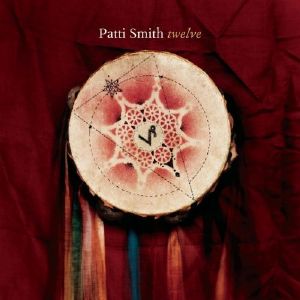
- Format: MP3

According to her brief liner notes, Patti Smith indulged the idea of a covers album, considering songs as far back as 1978 on the back pages of Jean Genet's Thief's Journal when she was still assembling her groundbreaking early catalog; it's evident she feels that covers have been part and parcel of her recording experience from the outset. Her debut, Horses, has her own apocalyptic version of Van Morrison's "Gloria" as well as a healthy portion of Chris Kenner's "Land of a Thousand Dances" inside "Land." On 1979's Wave she covered the Byrds "So You Want to Be (A Rock and Roll Star)," and scored with the single. Her intuitive reading of Bob Dylan's "Wicked Messenger" was a beautiful aspect of Gone Again in 1996, and she paid tribute to Allen Ginsberg by using one of his poems in "Spell," on 1997's Peace and Noise. And who can forget her reading of Pete Townshend's "My Generation" issued on the 30th Anniversary edition of Horses?
While it's a popular notion these days to consider a covers album a stop-gap between albums, the truth is that Smith has never been in a hurry when it comes to recording, though she has been very productive over the last decade. She has always paid tribute in one form or another to her heroes, however disparate. This collection is a wondrous sampling of pop hits, hard rock, ballads, and soul done in Smith's inimitable way of interpreting songs -- by getting inside them and breathing their meaning, and often uncovering new shades of meaning -- from within. She begins with a newer, more spiritual reading of Jimi Hendrix's "Are You Experienced?" letting her fine band -- Jay Dee Daugherty, Lenny Kaye and Tony Shanahan -- pulse the tune's changes and vibe while she comes across as a shaman leading the way down into the underworld. Her taking on Tears for Fears' smash hit "Everybody Wants to Rule the World" may come as a surprise, but in her open-throated take, the tune brims with the wisdom of a prophetess proclaiming the folly of humankind's need for power and greed. And while her version of Neil Young's "Helpless" may come across as a bit too reverent, the seed of memory is what infuses her take on this beautiful ballad. Loss and remembrance become a memento mori, an effigy to those who who've traveled on from this plane of existence. "Gimme Shelter" is a natural, and it carries all the foreboding of an apocalypse out the original nearly 40 years later as if to say that Jagger and Richard were right all along. The tune becomes a plea for shelter, rather than a demand. George Harrison's "Within You Without You" is the complete blending of spiritual longing, with droning acoustic guitars, skittering snares and open chord drones from Kaye's electric and fleshly experience. Smith's read of Dylan's "Changing of the Guard" is ambitious. Where the original was drenched in mariachi horns and a female backing chorus, she overturns those trappings and accents Dylan's last expressionistic lyric. She sings as if everything is at stake in this clash between the forces of light and darkness, where Melville, Dumas, Joan of Arc, the myth of Orpheus and the tales of Ovid are informed by both biblical prophecy and the tarot. The meld of acoustic guitars, brushed drums and muted kickdrum wind around her. The piano and Kaye's muted electric guitars fill the space where most of the backing vocals and horns once were -- except where Smith's daughter Jesse Paris Smith harmonizes -- and seduce the emotion out of the nearly surreal narrative of renunciation.
Perhaps no tune moves here like Smith's reading of "Smells Like Teen Spirit," with help from Sam Shepherd and John Cohen on banjo, Peter Stampfel on fiddle, and Kaye and Duncan Webster on guitar in a strange dreamscape driven by a standup bass. Smith digs into the lyric and then offers a poem that is as much an early American folk song elegy to the environment Kurt Cobain grew up in as it is to what's happening to America itself, but with current touches. Her poet's heart not only complements the original but makes the song timeless and brings Cobain's mature spirit to flesh once more. It is the most moving track on the set and the most visionary. Smith closes her set with a true outlaws campfire song in Gregg Allman's "Midnight Rider," and a darker than written, sparsely textured, elegiac cover of Stevie Wonder's "Pastime Paradise," with a truly haunting piano by Luis Resto. Her small notes annotating each track are welcome and revealing in and of themselves. If this is truly the covers album Smith has always wanted to record, she's succeeded on a level with the best of her studio recordings and a welcome addition to her catalog. Each song has her imprint without sacrificing the intent or spirit of the original. Full of slow burning passion and emotion, Twelve is magnificent.